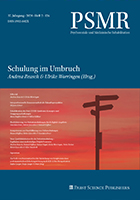"While globally, the last four decades have been dominated by ´war on drugs´ policies, in many European countries, there seems to be a consistent trend to growing normalisation of the use of certain illicit drugs, particularly cannabis, and towards non-punitive harm reduction measures, like syringe exchange and opiate agonist treatment. At the same time, on a policy level, there is today a growing tendency to denormalise tobacco use and to a lesser degree alcohol use. Some authors suggest stigmatising tobacco users to denormalise tobacco use for prevention reasons."
Drug normalisation primarily speaks of ´sensible´ recreational drug use. Sometimes ´sensible´ refered to ´soft´, ´club´ or ´dance´ drugs. Drug normalisation refers only to the use of certain drugs, primarily cannabis, but also nitrites, amphetamines and equivocally to LSD and ecstasy. The idea of sensible drug users using soft drugs asserts that these substances are less harmful, whereas hard drugs such as heroin and cocaine are seen as more hazardous. Thus, there is some ambiguity within the ´soft´ and ´hard´ drugs debate.























